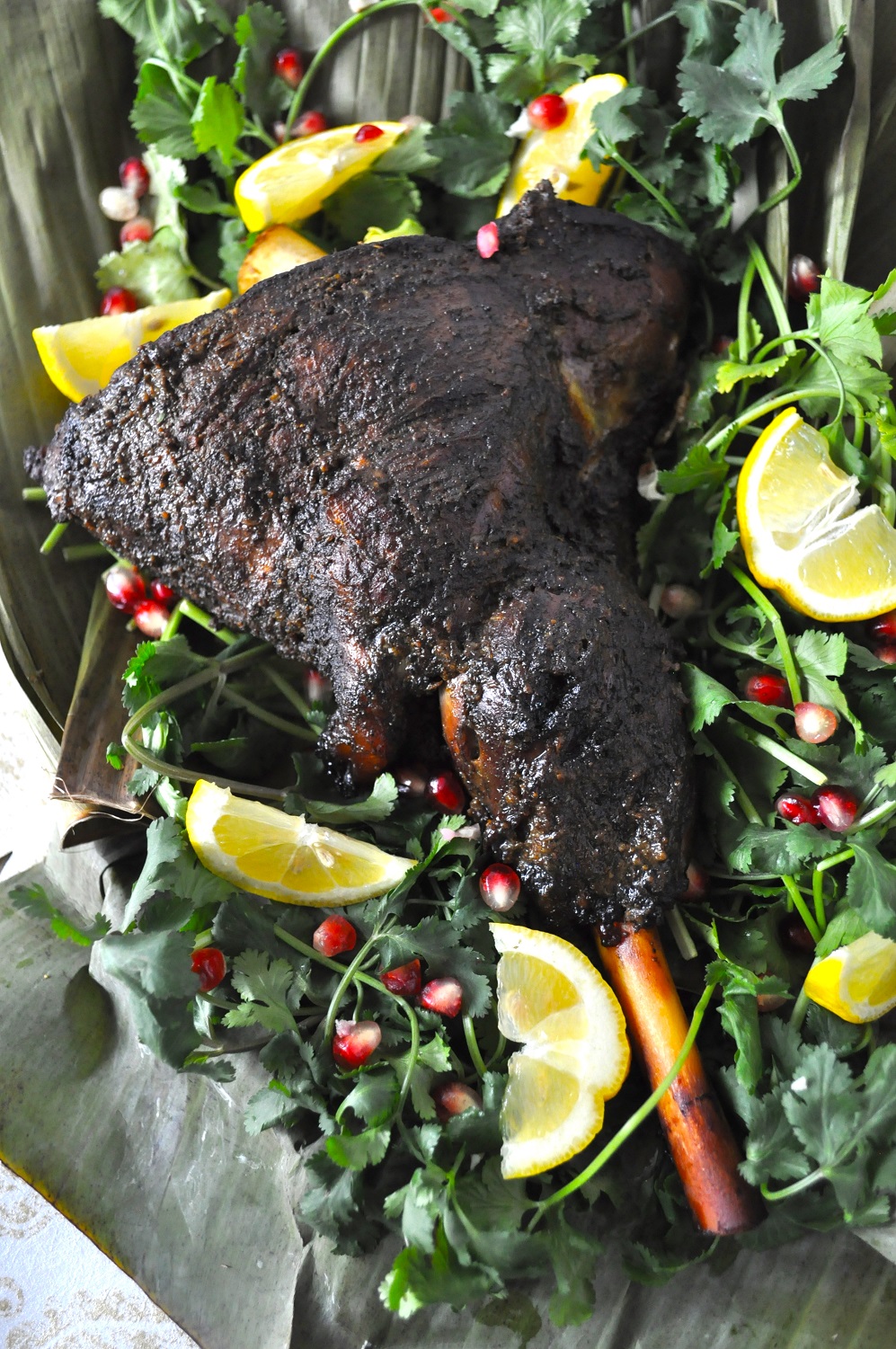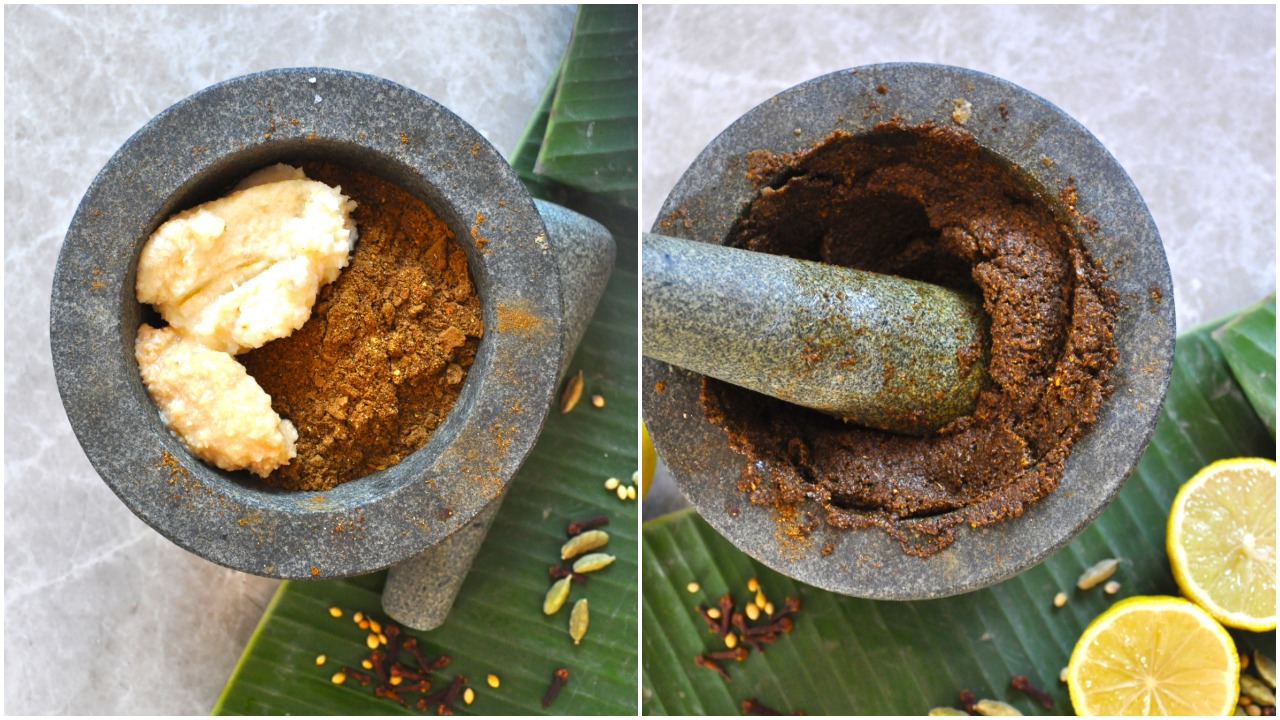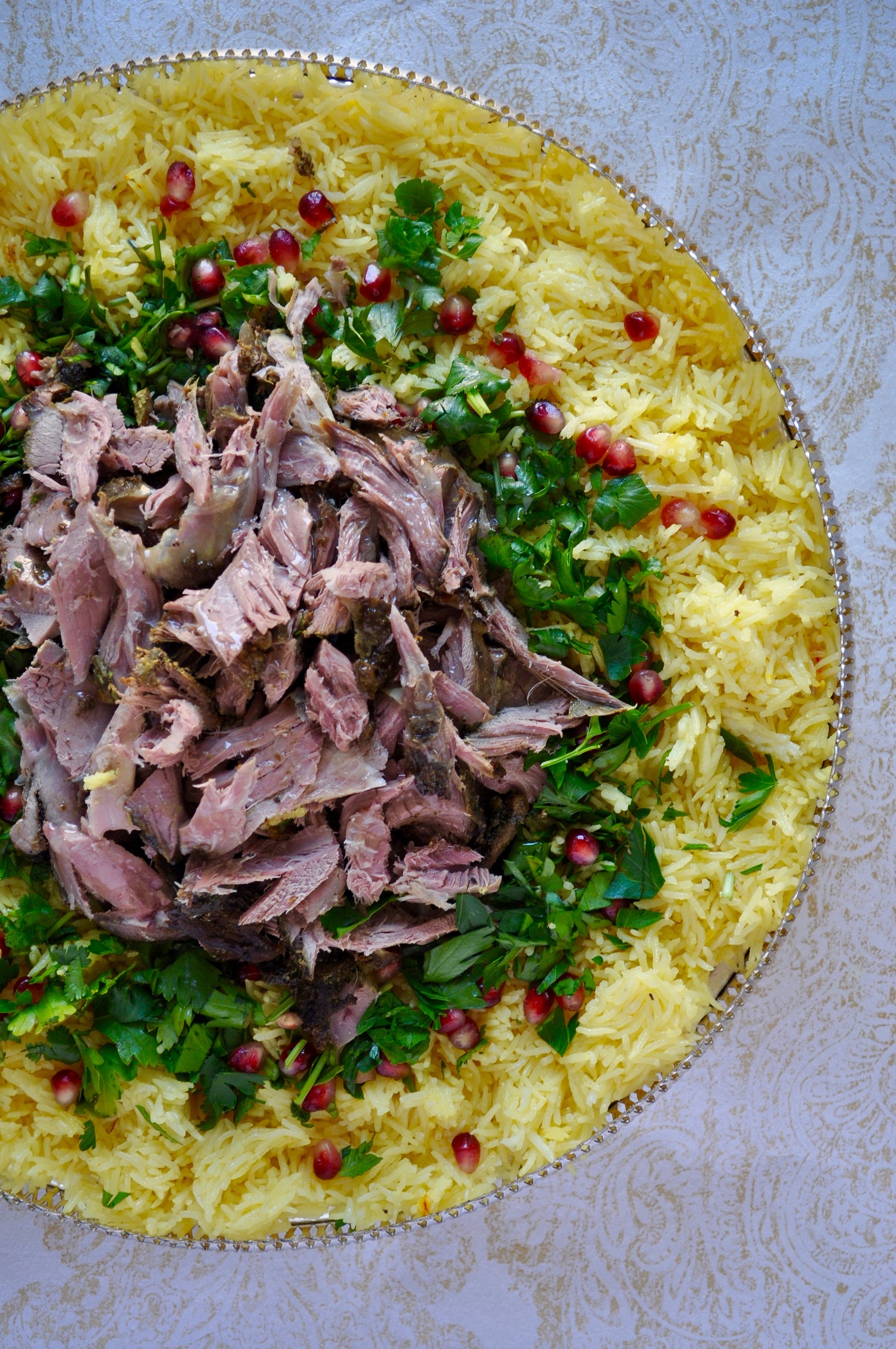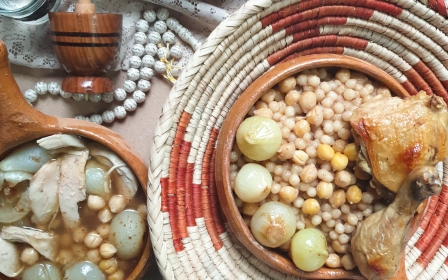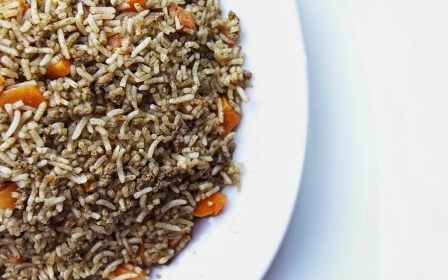How to make spicy slow-cooked lamb shuwa
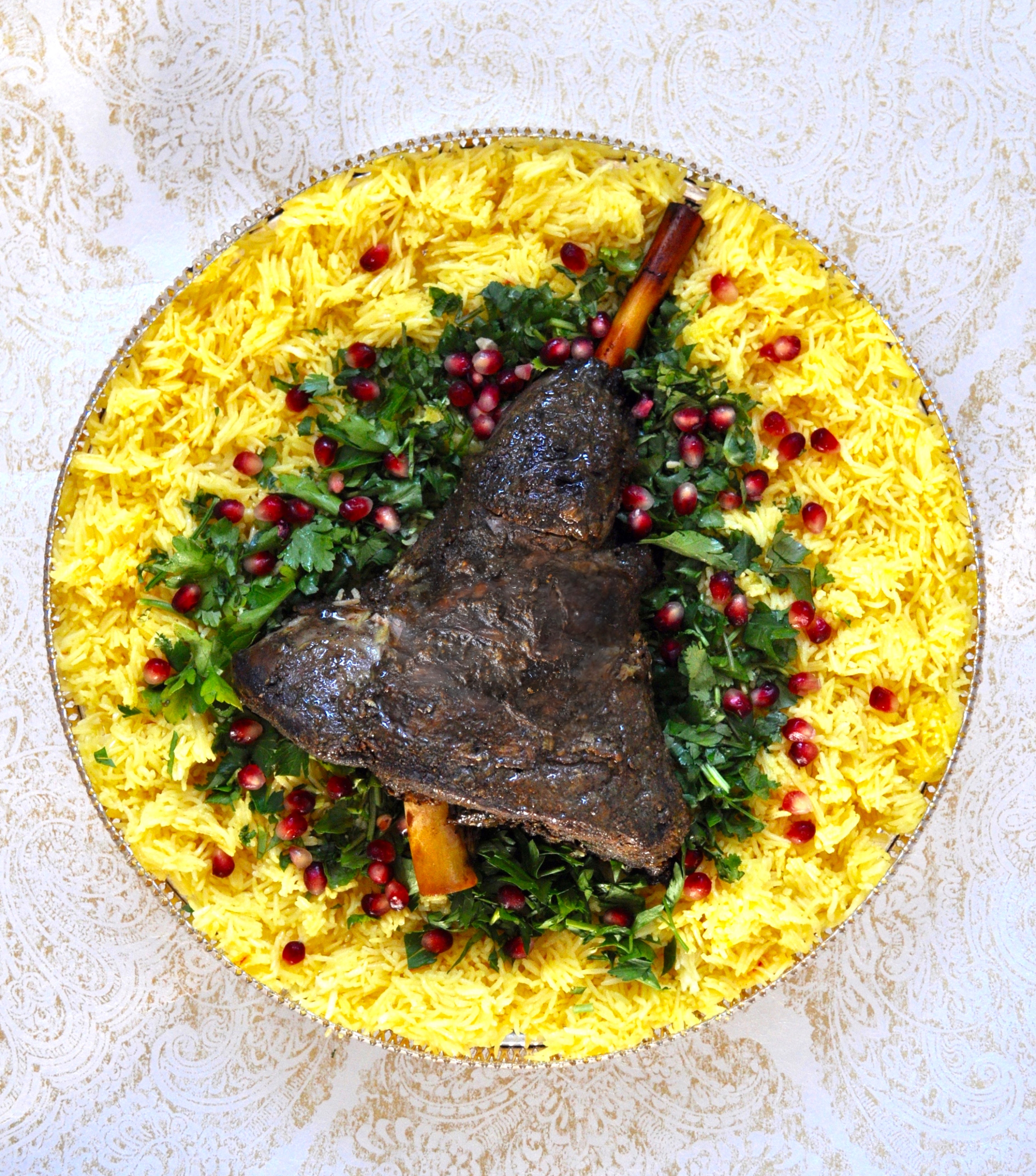
You have not experienced Oman until an Omani has made you shuwa, an incredible Eid delicacy famed around the Gulf.
Its centrepiece is a slow roasted lamb, sheep, goat - or even camel - which is bathed for up to 48 hours in baharat spice.
The blend usually pays homage to the host family's heritage, be it India, Zanzibar or Bahrain, and often includes such staples as cumin, coriander, chilli, cloves and nutmeg.
New MEE newsletter: Jerusalem Dispatch
Sign up to get the latest insights and analysis on Israel-Palestine, alongside Turkey Unpacked and other MEE newsletters
Traditionally the meat, once marinated, is wrapped in banana leaves and then placed in the ground on top of hot coals on the first day of Eid, to be eaten the following day. This process of slow cooking encases the joint in a decadent and thick crust of spices, beneath which lies the tenderest of flesh that falls straight off the bone.
Shuwa conjures up the fondest of memories for Omanis and is anticipated by the country every Eid. Often enough is cooked to serve a whole community, as everyone sits on the floor and picks at the vast platters with their hands in a spirit of togetherness that forgets the troubles of the outside world.
Those living away from Oman try and keep to the tradition. Burying meat in the ground is not the wisest thing to do: instead careful testing and recipe refinement over the years has ensured that the method has been perfected in a conventional oven.
It's best served with saffron or spiced rice and a yoghurt-based salad. The leftovers can be kept till the next day, fried and tucked inside a warm pitta for a mini shawarma.
Recipe
Serves: 8
Preparation and cooking time: Marination: 12-24 hours, cooking: 4-5 hours
1. Ingredients
- 1 leg of lamb or 1 sheep shoulder
- 3 tbsp white vinegar
- 2 fresh limes
- 1 tbsp salt
- 3 tbsp of garlic paste or 10 cloves (mashed)
- 50ml (1¾fl oz) of vegetable oil
Baharat spice mix*
- 2 tbsp black peppercorns
- 1 tbsp coriander seeds
- 1 cinnamon stick
- 1 tbsp cloves
- 2 tbsp cumin seeds
- 5 cardamom pods
- 1 tbsp nutmeg powder
- 2 tbsp chilli flakes
*Alternatively, if you can obtain it: 60g of pre-made, shop-bought baharat mix
2. Method
Making the baharat
- In a frying pan, combine all the spices and dry fry on a medium to high heat, just till it begins to smoke and you can smell a strong aroma.
- Ensure you keep stirring the spices. Do not leave on the heat on for too long as the spices can burn easily and you’ll be left with a bitter taste.
- Place the mixture in a blender and blitz until you have a fine powder.
Marinating the meat
- Combine the baharat mix with the vinegar, limes, salt, garlic and oil.
- Mix them together well until you have formed a paste (I use a pestle and mortar)
- Place your meat inside a roasting tray that is covered in foil.
- Using a knife, cut small slits all over the meat to allow the marinade to get inside.
- Pour the marinade over and massage with your hands into all the creases, folds and cuts of the meat.
- Don’t worry if you have excess marinade left over. Just pour it all over.
- To finish, pull the foil from the bottom and wrap it over the meat so it is sealed like a parcel.
- Leave to marinade in the fridge for a minimum of 12 hours.
Cooking the shuwa
- Take the meat out of the fridge and allow it to reach room temperature.
- Heat the oven to 140°C (275°F).
- Cook for approximately 5 hours.
You can follow Dina on her Instagram at @dinewithdina, Facebook or www.dinewithdina.co.uk
This article is available in French on Middle East Eye French edition.
Middle East Eye delivers independent and unrivalled coverage and analysis of the Middle East, North Africa and beyond. To learn more about republishing this content and the associated fees, please fill out this form. More about MEE can be found here.


